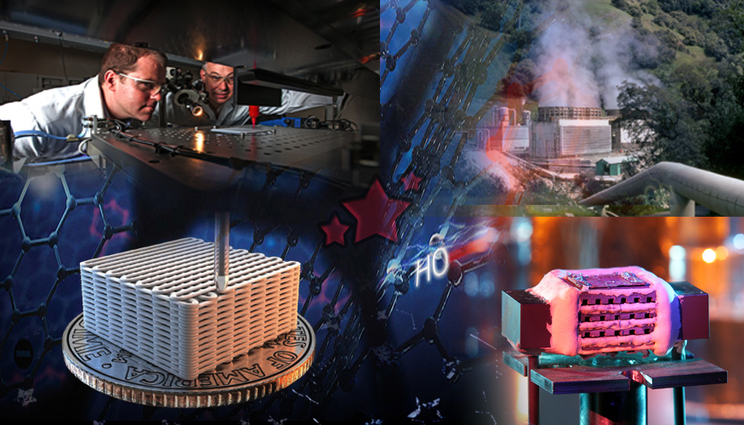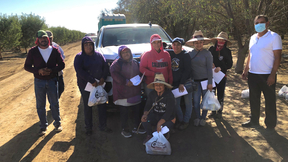Bay Area labs team up to share clean energy, manufacturing expertise with small businesses
 (Download Image)
The Bay Area's national laboratories are offering up their manufacturing and clean energy expertise to small businesses through a new voucher pilot program.
(Download Image)
The Bay Area's national laboratories are offering up their manufacturing and clean energy expertise to small businesses through a new voucher pilot program.
LIVERMORE— Lawrence Livermore National Laboratory (LLNL), in partnership with Lawrence Berkeley National Laboratory (LBNL) and Sandia National Laboratories/California (SNL/CA), have been awarded $4.15 million by the Department of Energy (DOE) to jointly launch a new small business voucher pilot.
The three-way national lab partnership, known as LabSTAR, will be funded under DOE’s $20 million investment in small business assistance, which is one component of its National Lab Impact Initiative.
"LabSTAR pulls together a consortium of national labs located in the Bay Area that marry cutting-edge science and technology with a regional ecosystem that promotes small business success," said Rich Rankin, the director of LLNL’s Industrial Partnerships Office. "The Lab is excited about the potential this collaboration offers to connect us to the small business community."
Jeff Roberts, LLNL’s program leader for renewable energy, said, "The small business voucher pilot program is an excellent way for small businesses to tap into the expertise of the national laboratories to solve problems in the areas of clean energy and manufacturing."
Alecia Ward, LabSTAR program lead and head of program and business development for LBNL's Energy Technologies Area, noted that the pilot "unites three national labs to serve as a Bay Area ecosystem for providing access to the unique assets of the national lab system, such as basic science, prototyping, analysis, supercomputers, accelerators and more."
The National Lab Impact Initiative seeks to significantly increase the industrial impact of DOE national labs on the U.S. clean energy sector. LabSTAR was awarded the pilot for applications in four sectors: battery technologies, fuel cell technologies, geothermal technologies and advanced manufacturing.
"LabSTAR will create opportunities for the national labs to share their unique assets with small businesses, who can leverage our expertise in geothermal technologies, transportation energy, materials science and other fields to create innovative clean energy solutions," said Carrie Burchard, business development manager at Sandia/California.
LLNL has major programs in a number of clean energy areas, such as novel materials for batteries, efficient engine design, fuel cells and low-temperature geothermal technologies.
"We have world-class advanced manufacturing and high-performance computing capabilities that leverage significant investments in the Laboratory by the National Nuclear Security Administration," Rankin stated.
Small businesses, defined as companies with fewer than 500 employees, will be able to apply for up to $300,000 in vouchers for work at one of the three national labs. A successful application will require a 20 percent cost share by the business.
"They could apply to do research with a particular scientist or use a certain facility, such as the High Performance Computing Innovation Center at Livermore or the Molecular Foundry at Berkeley Lab for nanoscale research," Ward said. "We expect dozens of small businesses will be able to benefit from this program in its first two years."
LabSTAR also includes an unprecedented level of support from a diverse range of state, local and regional partners, as well as startup incubators like Cleantech Open and the Massachusetts Clean Energy Center and business organizations such as the Silicon Valley Leadership Group.
"We especially have strong support from incubators in California, Minnesota, Wisconsin, Massachusetts, South Carolina, Georgia Texas and Hawaii," Ward said. "The purpose of these partnerships is to reach as many small and emerging technology businesses as possible and to have as strong an applicant pool as possible."
Contact
 Stephen Wampler
Stephen Wampler
[email protected]
(925) 423-3107
Related Links
LLNL Industrial Partnerships OfficeSandia National Laboratories/California
Berkeley Lab, Innovation and Partnerships Office
LabSTAR
Tags
BatteriesEconomic Impact
Industry Collaborations
Technology Transfer
Energy
Featured Articles







